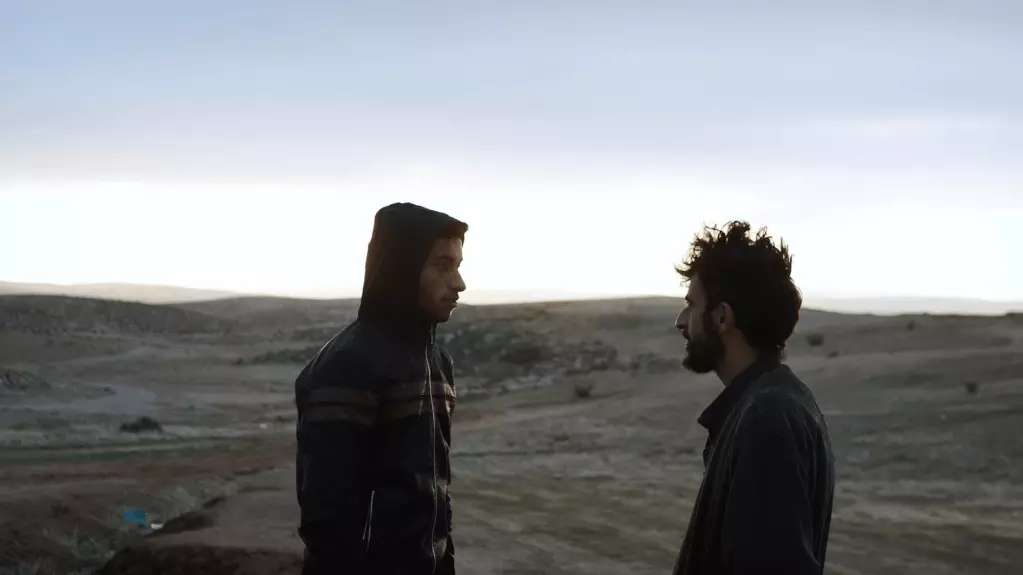In an era where cinema serves as both a mirror and a window into societal complexities, new films meld poignant stories with rich cinematic techniques, creating transformative experiences for viewers. This article delves into a selection of recent premieres, shedding light on works that push boundaries across the documentary and fictional spectrum, highlighting societal challenges, interpersonal connections, and the intersection of art and advocacy.
At the forefront of the current cinematic landscape is “No Other Land,” an Academy Award-nominated documentary that recently made its debut at Film Forum in New York. Crafted by a collaborative team of Palestinian and Israeli filmmakers—Basel Adra, Hamdan Ballal, Yuval Abraham, and Rachel Szor—the film intricately charts the lives of the residents of Masafer Yatta, a region plagued by ongoing military displacement. This documentary, which recorded over five years of harrowing experiences, investigates the root causes of conflict while emphasizing the resilience of individuals caught in tumultuous circumstances.
The documentary’s release coincides with heightened tensions in the region due to the Israel-Hamas war, though it was conceived before the conflict metastasized. As Adra and Abraham document the profound struggles related to home demolitions authorized under military training mandates, their unique perspectives offer insight into a profound friendship that transcends borders and ideological divides. Their partnership—a delicate balance of trust and understanding—exemplifies the possibilities of compassion amid adversity. This film dares to invite viewers into the very heart of human experience as it grapples with themes of displacement, loss, and solidarity.
Shifting gears to fictional cinema, “Love Me” brings a unique blend of romance and sci-fi, exploring concepts of identity and technology against a backdrop of humanity’s forgotten past. Directed by Sam Zuchero and Andy Zuchero, and featuring performances by Kristen Stewart and Steven Yeun, this film raises intriguing questions about love and existence in a world devoid of human life. With a premise that unfolds long after humanity’s extinction, the film draws viewers into a cosmic love story that transcends both time and space.
Utilizing an eclectic array of filmmaking techniques—from live-action to animation—”Love Me” captures the essence of connection in a disjointed universe. The journeys of the protagonists not only uncover what it means to be alive but also explore how technology impacts our identity and relationships. The visual style of the film mirrors the complexity of the narrative, inviting audiences to reflect on the intersections between personal and technological evolution.
On a different narrative note, “Marcello Mio,” directed by Christophe Martin, explores the intricate theme of identity through the character of Chiara Mastroianni, who portrays a daughter grappling with her father’s legacy. In a story steeped in family dynamics, Mastroianni’s character adopts the persona of her legendary father, Marcello Mastroianni, blending admiration, loss, and a quest for self-identity into an impactful narrative.
Debuting at the Cannes Film Festival, the film’s exploration of impersonation and family heritage offers profound commentary on memory and recognition. As Chiara dons her father’s identity, the line between reality and performance blurs, prompting viewers to ponder the complexities of familial love and the lengths one might go to retain connections to their past.
Briarcliff Entertainment’s “Green And Gold,” starring Craig T. Nelson as a dairy farmer on the brink of losing everything, juxtaposes personal stakes against a broader cultural phenomenon. The narrative delves into how one man’s passion for the Green Bay Packers serves as both gamble and strategy in an attempt to secure his future. As the Super Bowl approaches, audiences witness a blend of sports enthusiasm and emotional tumult, a reflection of how cultural touchstones can shape individual lives.
This film’s crescendo resonates with many viewers, drawing parallels between community bonding, economic rivalry, and fervor for sport, illuminating the human condition in times of uncertainty.
Lastly, “This Woman” marks the directorial debut of artist Alan Zhang and presents a powerful docufiction that navigates the life of Beibei, a woman undergoing existential crises during the pandemic. It reflects contemporary sentiments and questions surrounding social expectations, loneliness, and the quest for fulfillment. The film is enriched by Zhang’s deep understanding of feminist perspectives, offering an intimate glimpse into a woman’s journey of self-discovery amid overwhelming societal pressures.
By skillfully blending documentary elements with narrative fiction, the film paves a new avenue for storytelling that resonates deeply in today’s societal context.
Together, these cinematic releases showcase the power of film to probe complex societal issues, navigate personal relationships, and foster a deeper understanding of our shared existence. In doing so, they remind us that whether through documentary or fictional storytelling, cinema remains an essential medium for reflecting the beauty and challenges of life.

